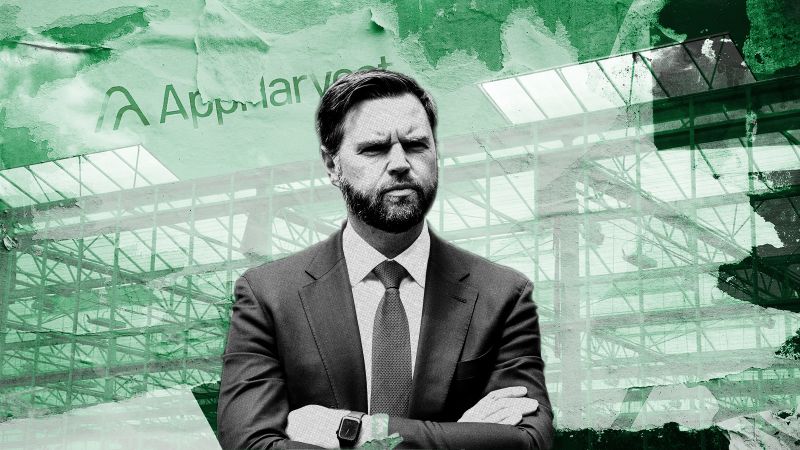JD Vance, a venture capitalist, emphasized the importance of investing in businesses that not only turn a profit but also help American communities. He invested in AppHarvest, a startup that promised a high-tech future for farming and for the workers of Eastern Kentucky. Vance was an early investor, board member, and public advocate for AppHarvest, proclaiming it as a great business that makes a big difference in the world. However, the company declared bankruptcy last year after accumulating hundreds of millions of dollars in debt.
The collapse of AppHarvest and Vance’s involvement in it contradicts his image as a champion for the working class, a persona that helped him rise to prominence as Donald Trump’s running mate. A CNN review of public documents and interviews with former workers revealed that AppHarvest not only failed as a business due to its pursuit of rapid growth but also provided a negative job experience for many working-class Kentuckians that Vance had pledged to assist. This discrepancy highlights the complexities of investing in companies that aim to benefit both financially and socially.
Vance’s experience with AppHarvest underscores the challenges of balancing profitability with social impact in business ventures. While he believed in the company’s mission to revolutionize farming in Eastern Kentucky and create jobs for locals, the reality of the situation was far from ideal. The bankruptcy of AppHarvest serves as a cautionary tale for investors looking to support companies that promise both financial success and community benefit.
The downfall of AppHarvest raises questions about the sustainability of high-growth business models and the impact of such ventures on local communities. Despite its initial promise and support from investors like Vance, the company ultimately faltered under the weight of its debt and operational challenges. This failure sheds light on the complexities of building a business that not only generates profits but also fulfills a broader social mission.
Vance’s involvement in the rise and fall of AppHarvest highlights the risks and rewards of investing in companies that aim to make a positive impact on society. While his intentions may have been noble in supporting a venture that sought to transform agriculture and create jobs in a struggling region, the ultimate outcome was far from successful. This experience serves as a reminder of the importance of due diligence and careful consideration when investing in businesses with dual objectives of profitability and social good.
In conclusion, JD Vance’s investment in AppHarvest and its subsequent bankruptcy underscore the challenges of balancing financial success with social impact in business ventures. While the company’s mission to revolutionize farming in Eastern Kentucky and create jobs for locals was admirable, the reality of its downfall serves as a cautionary tale for investors. The rise and fall of AppHarvest highlight the complexities of investing in companies that aim to benefit both financially and socially, and the importance of careful consideration and due diligence in supporting ventures with dual objectives.


